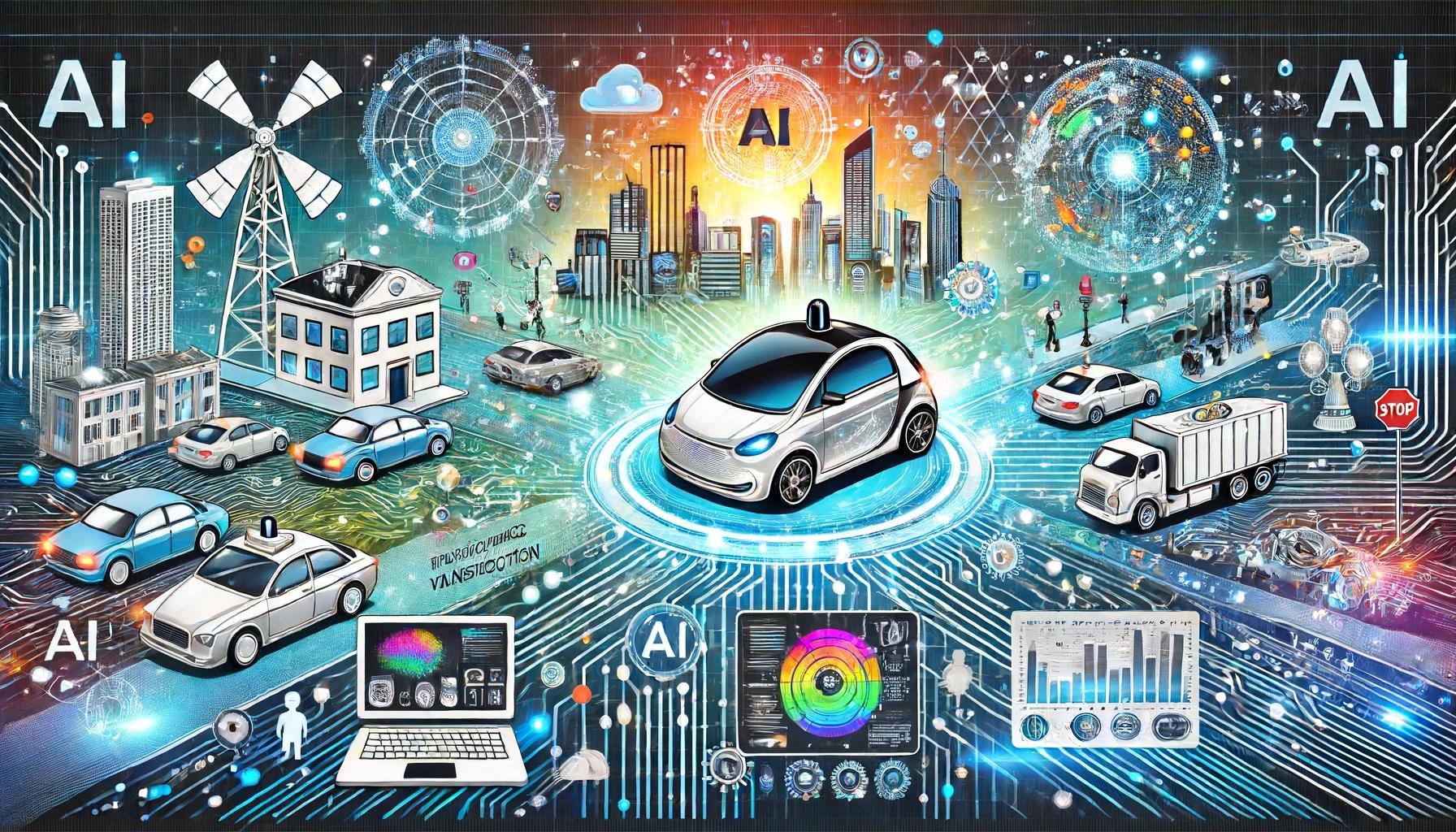Artificial Intelligence (AI) is revolutionizing the automotive industry, particularly in the realm of autonomous vehicles. These self-driving cars rely heavily on AI to navigate, make decisions, and ensure passenger safety. With advancements in AI, the dream of fully autonomous vehicles is becoming a reality, promising to transform transportation, reduce accidents, and increase efficiency.
The Role of AI in Autonomous Vehicles
AI plays a critical role in the functionality of autonomous vehicles. It enables these vehicles to perceive their environment, process information, and make decisions in real-time. Key AI technologies used in autonomous vehicles include:
- Machine Learning (ML): Machine learning algorithms help vehicles learn from data, improving their performance over time.
- Computer Vision: This technology allows vehicles to interpret and understand visual information from their surroundings using cameras and sensors.
- Natural Language Processing (NLP): NLP helps in voice recognition and command processing, enabling interaction between the vehicle and passengers.
- Deep Learning: Deep learning models, particularly neural networks, are essential for object detection, path planning, and decision-making processes.
Key Components of Autonomous Vehicles
Sensors and Data Acquisition
Autonomous vehicles are equipped with a variety of sensors, including cameras, radar, LiDAR, and ultrasonic sensors. These sensors collect vast amounts of data about the vehicle’s surroundings, which is crucial for safe navigation.
Data Processing and Interpretation
The data collected by sensors are processed and interpreted by AI algorithms. This involves real-time analysis of the environment, identifying objects, predicting their movements, and planning safe and efficient routes.
Decision-Making and Control
AI in autonomous vehicles must make complex decisions quickly. For instance, it must decide when to stop, accelerate, or take evasive action to avoid collisions. These decisions are made based on inputs from sensors and predefined algorithms.
Benefits of AI in Autonomous Vehicles
Enhanced Safety
One of the primary benefits of AI in autonomous vehicles is enhanced safety. AI systems can react faster than human drivers, reducing the likelihood of accidents caused by human error. They are also capable of continuous monitoring and can make decisions based on comprehensive situational awareness.
Improved Traffic Management
AI can optimize traffic flow by predicting and responding to real-time traffic conditions. Autonomous vehicles can communicate with each other and with traffic management systems to minimize congestion and reduce travel times.
Increased Efficiency
Autonomous vehicles can operate more efficiently than human-driven cars. They can optimize routes, reduce fuel consumption, and lower emissions by maintaining steady speeds and avoiding unnecessary stops.
Challenges Facing AI in Autonomous Vehicles
Technical Challenges
Developing AI systems that can handle the complexity of real-world driving is a significant technical challenge. AI must be able to interpret and react to a vast array of scenarios, some of which may be unpredictable.
Ethical and Legal Issues
The deployment of autonomous vehicles raises ethical and legal questions. For example, in the event of an unavoidable accident, how should the AI prioritize the safety of different individuals? Additionally, regulations and standards for autonomous vehicles are still evolving.
Data Privacy and Security
Autonomous vehicles generate and process large amounts of data, raising concerns about data privacy and security. Ensuring that this data is protected from cyberattacks is crucial for maintaining public trust.
The Future of AI in Autonomous Vehicles
Advancements in AI Technology
Ongoing advancements in AI technology, such as more sophisticated machine learning algorithms and improved sensor capabilities, will continue to enhance the capabilities of autonomous vehicles. Future developments may include better object recognition, more efficient data processing, and more reliable decision-making systems.
Integration with Smart Infrastructure
The integration of autonomous vehicles with smart infrastructure, such as connected traffic lights and road sensors, will further enhance their efficiency and safety. This interconnected ecosystem will enable real-time communication between vehicles and infrastructure, optimizing traffic flow and reducing accidents.
Widespread Adoption
As technology advances and regulatory frameworks are established, the widespread adoption of autonomous vehicles is expected to increase. This will lead to significant changes in transportation systems, urban planning, and societal norms.
Conclusion
AI is at the forefront of the autonomous vehicle revolution, driving significant advancements in safety, efficiency, and traffic management. Despite the challenges, the future of autonomous vehicles looks promising, with ongoing innovations poised to transform the way we travel. As we continue to develop and refine AI technologies, the dream of fully autonomous vehicles on our roads is becoming an achievable reality.
For more detailed information on AI in autonomous vehicles, you can refer to sources like Forbes, MIT Technology Review, and IEEE.

Leave a Reply